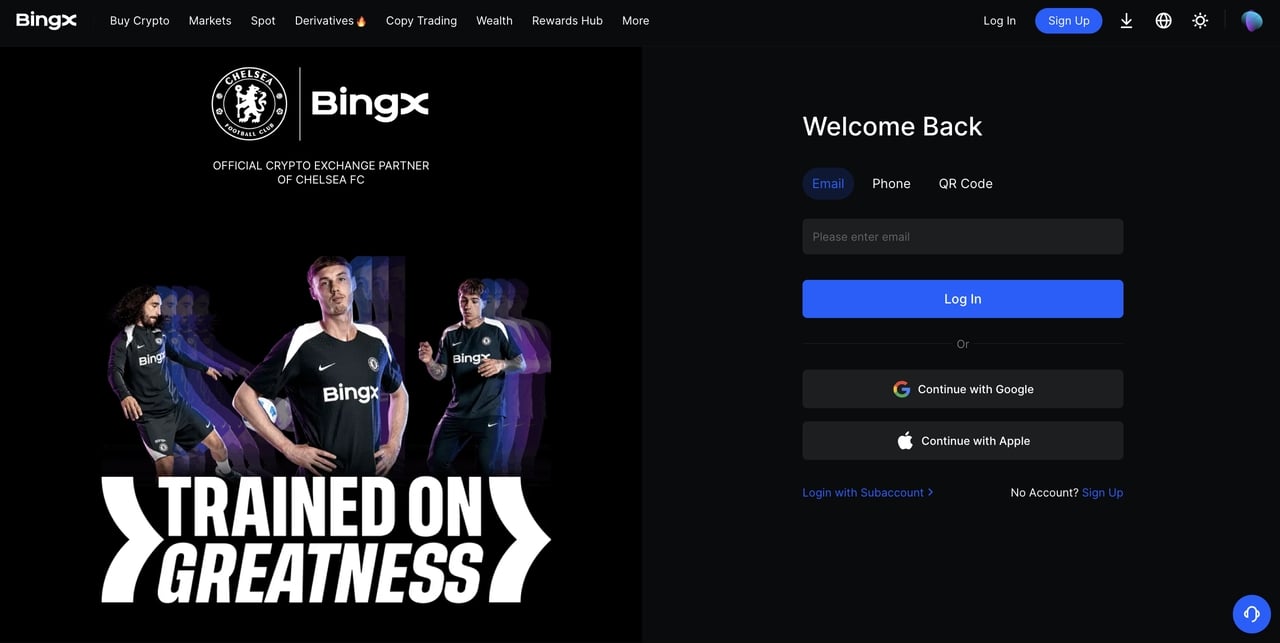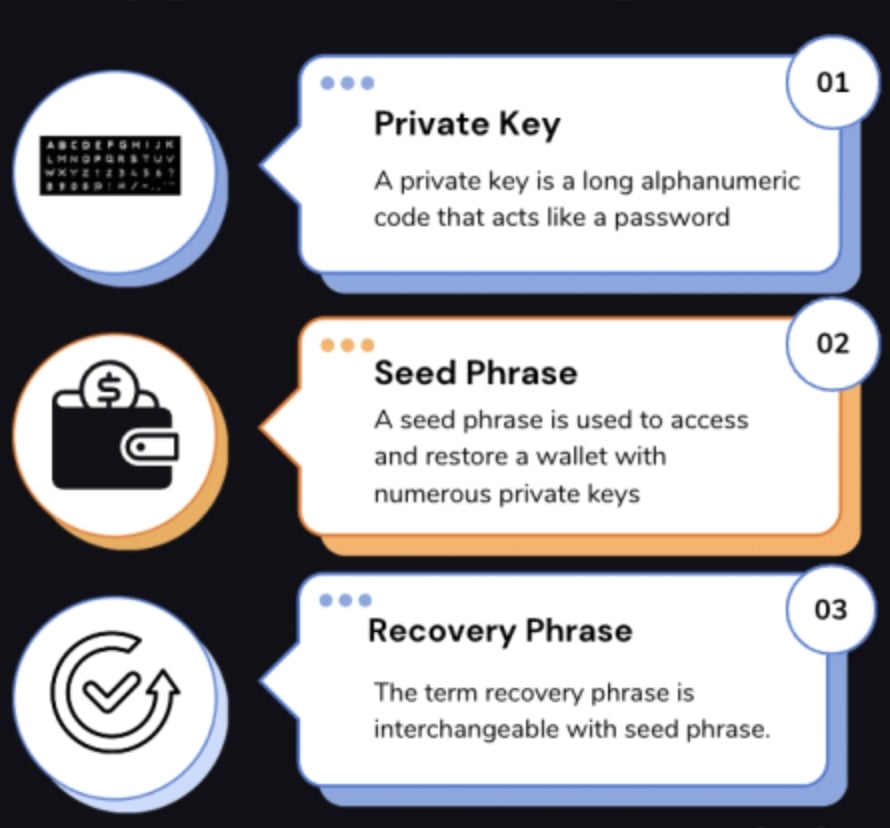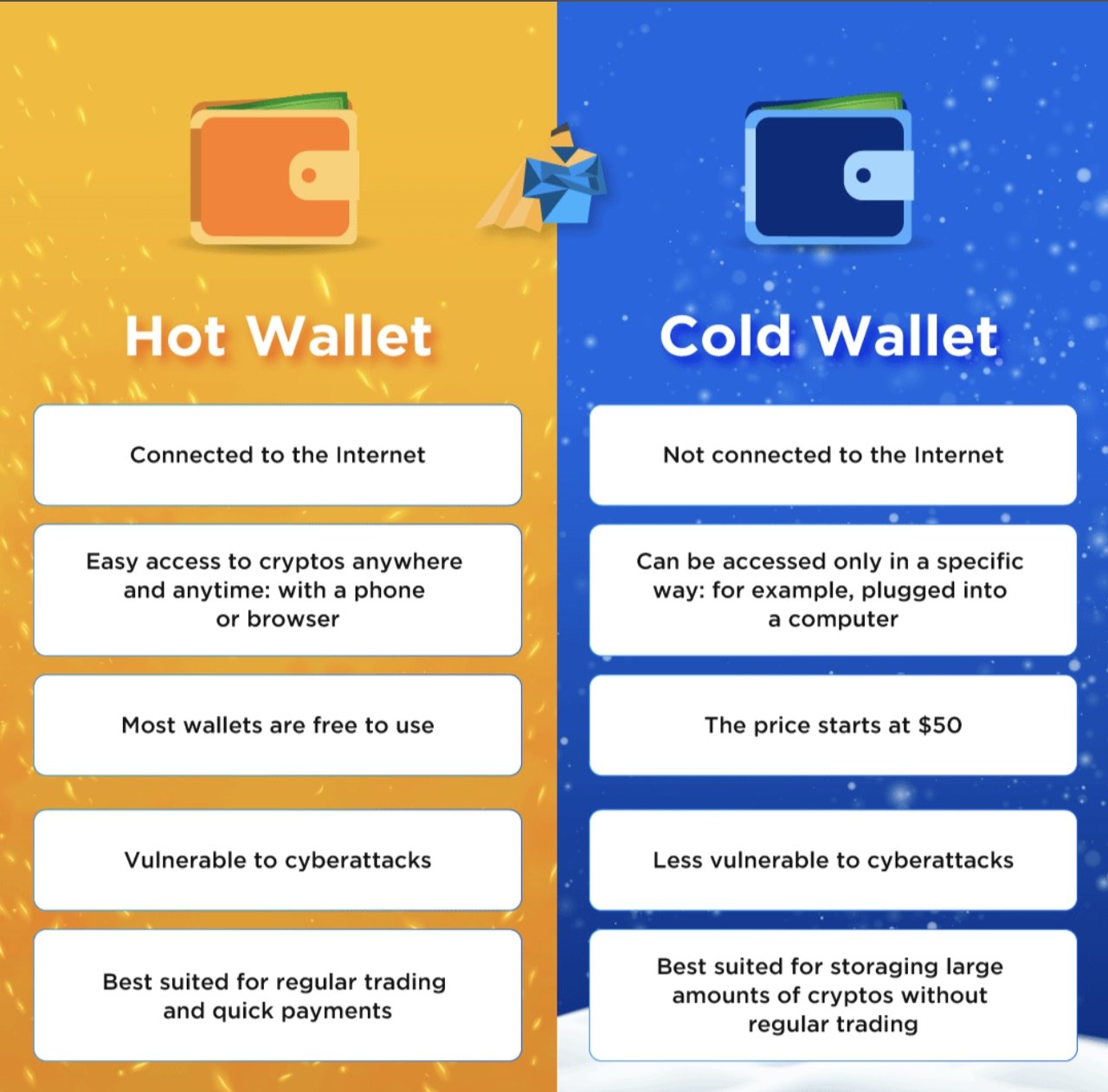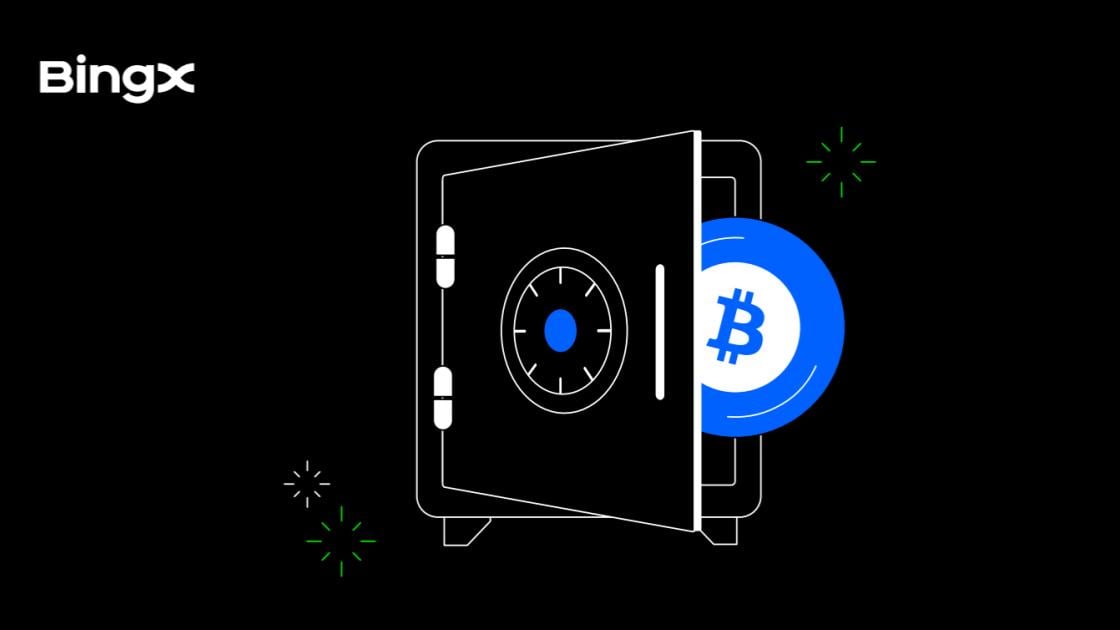When you buy your first cryptocurrency, have you ever wondered where it actually goes? If you purchase on a centralized exchange (CEX) like BingX, your funds are stored in an exchange wallet. According to
Triple A, global crypto ownership rates at an average of 6.8%, with over 560 million crypto users worldwide since 2024, making wallets indispensable in today's digital economy.
Learn what crypto exchange wallets are, how they work, and how to use them safely to store, send, and trade digital assets on platforms like BingX.
What Are Crypto Exchange Wallets?
An exchange wallet (CEX wallet) is a type of cryptocurrency wallet managed by the exchange itself, which means you don't directly control the private keys but gain seamless access to your crypto through a simple login. The big question then becomes, what's the next move with your newly acquired crypto and why should you hold your crypto in a secure exchange like BingX?
Your First Crypto Wallet Is Likely an Exchange Wallet
Why do most people start with crypto exchange wallets? It's simple: exchanges make buying crypto easy. As soon as you purchase, your assets land in a custodial wallet where the exchange holds your private keys for you. This setup lets you log in with a username and password instead of juggling complex cryptographic strings.
Exchanges like BingX also invest heavily in safeguarding those keys, making sure your assets remain secure while giving you the convenience to trade instantly. But what if you'd rather hold your own keys? That's where non-custodial options come in.
Why Are Private Keys Necessary?
The public key functions as an identifier for your account on the blockchain network, similar to an email address that you share to receive funds. On the other hand, the private key is used to sign and authorize the transfer of digital money, akin to a password for your email. Only the wallet owner possesses the private key, and it should be securely stored and never shared with anyone.
The private key corresponds to your public key and serves to confirm ownership of your funds. In
DeFi, blockchain transactions can take various forms, including sending digital money, depositing digital dollars into Compound Liquidity Pools, and accessing services like borrowing, investing, and trading.
Hot vs. Cold: What Kind of Wallet Is an Exchange Wallet?
Source: Reddit via ChangeHero
Ever wondered if your exchange wallet is hot or cold? The truth is, it's typically both. The wallet you actively use on an exchange is a hot wallet, connected to the internet and designed for quick transactions. But most reputable exchanges keep the majority of customer funds in cold wallets, offline, hardware-protected storage that makes them far less vulnerable to hackers.
This balance ensures that while your daily withdrawals are covered, the bulk of funds remain safe in cold storage. So, how much should you trust your exchange? That depends on its reputation, security track record, and transparency.
How to Choose the Best Crypto Wallet in 2025
Picking the right crypto wallet comes down to balancing security, convenience, and control. Whoever holds private keys controls the coins, making your wallet both a storage solution and a security system.
1. Security vs. Convenience: Hot wallets, like mobile or web apps, are easy to use and great for small, everyday transactions. Cold wallets, such as hardware devices or air-gapped setups, keep your keys offline and safe from online threats, but they're less convenient for frequent transfers. Many users find a mix works best - using a hot wallet for spending and a cold wallet for savings.
2. Self-Custody vs. Custodial Options: If you don't hold
private keys, you don't fully own your crypto. Custodial services, like exchange wallets, are beginner-friendly and often come with added features, but s
elf-custody wallets give you full independence and control over your funds.
3. Advanced Features in 2025: Today's wallets go beyond basic storage. Lightning wallets make Bitcoin payments instant and cheap, while multisig setups offer shared access and inheritance planning. These features are becoming mainstream, giving you more flexibility in how you manage your Bitcoin.
How Secure Are Exchange Wallets?
If exchanges make it easy, are they always safe? History shows that while hacks have happened, major regulated platforms have learned hard lessons and built stronger defenses. Today, exchanges like BingX employ strict security protocols, insurance coverage, and cold storage to protect users. Choosing a trustworthy exchange like BingX and adding your own security layers, like 2FA, VPN use, and strong unique passwords, is essential.
BingX Exchange Wallet: The Simplest Way to Start Storing Your Crypto
The BingX Exchange Wallet is the most beginner-friendly way to start storing crypto. When you buy BTC directly on BingX, it's automatically stored in your exchange wallet without needing extra setup. This makes it easy to get started, since you don't have to worry about downloading external apps, generating private keys, or backing up seed phrases right away.
Beyond storage, BingX gives you quick access to trading features, so you can buy, sell, or convert Bitcoin instantly on the
spot market. For more advanced users, the
futures market lets you trade BTC with leverage and hedge against price swings. You can also automate your strategy with trading bots, which help manage trades 24/7 without constant monitoring. You can also use
BingX AI tools to get market insights, risk analysis, and trading suggestions. Complete the purchase; your BTC will appear in your Funding/Spot wallet on BingX.
On top of that,
BingX Earn allows you to generate passive income, and
Copy Trading lets you follow top traders without handling strategies yourself. This mix of storage, trading, and automation makes the BingX wallet a practical choice for both beginners and experienced traders.
For new investors, the BingX wallet strikes a balance between security and convenience. It's ideal if you're still learning about private wallets and want to focus on buying and using Bitcoin first. Later, as your holdings grow, you can consider moving some BTC into more advanced options like hardware wallets for long-term cold storage.
Conclusion
So should you use an exchange wallet or take full control with a hardware wallet? Exchange wallets are perfect for quick trading and easy access, while hardware wallets give you maximum control and peace of mind for long-term holdings. BingX provides top-level security, making it a safe place to store your crypto. Many investors end up using both, an exchange wallet for trading, a mobile wallet for flexibility, and a hardware wallet for safekeeping larger balances.
Ultimately, the best wallet depends on your goals. If you want simplicity, a mobile or custodial wallet may work. If you're holding large amounts for the long term, hardware or multisig solutions are more safeguarded. Choosing the right balance ensures your Bitcoin is both usable and protected. No matter your approach, one rule remains the same, security comes first.
Related Reading
FAQs on Crypto Exchange Wallets
1. What is a crypto exchange wallet?
It's a wallet provided by an exchange to store your purchased crypto, with the exchange holding private keys.
2. Is storing my crypto on BingX secure?
Yes, BingX keeps most funds in offline cold wallets and uses strong protections like 2FA and encryption.
3. What’s the difference between a hot wallet and a cold wallet?
Hot wallets are online and fast but more exposed, while cold wallets are offline and more secure.
4. Who controls private keys in an exchange wallet?
In a secure, custodial exchange wallet like BingX, the exchange holds private keys on your behalf for easier access and trading.
5. Should I keep my assets on a CEX exchange?
It depends on your needs. Keeping some funds on BingX makes trading fast and convenient, while storing larger, long-term holdings in
hardware wallets (like
Ledger or Trezor) adds extra security since they remain offline and less vulnerable to hacks.






